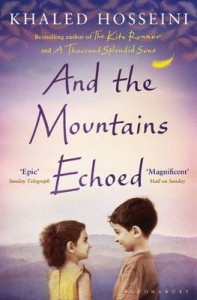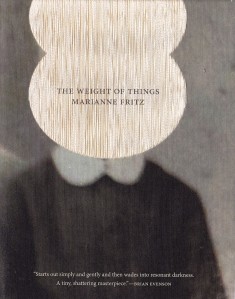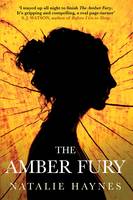 I recently read Khaled Hosseini’s And the Mountains Echoed for my book group. It’s the kind of realism that is not generally to my taste, but I found it okay for the most part. That was until the point where two characters were about to be reunited, when I had a distinct sense of being made to care about these characters – and I did not like that sense at all. “Unpleasantly manipulative book,” I thought.
I recently read Khaled Hosseini’s And the Mountains Echoed for my book group. It’s the kind of realism that is not generally to my taste, but I found it okay for the most part. That was until the point where two characters were about to be reunited, when I had a distinct sense of being made to care about these characters – and I did not like that sense at all. “Unpleasantly manipulative book,” I thought.
But this reaction raises some questions for me. Couldn’t it be argued that all fiction is ‘manipulative’, in that fiction manipulates language, and language affects the reader? Well, maybe, but that makes it sound as though fiction is just a trick, and I don’t believe that – I have been affected deeply, viscerally by some fiction; it would be denying the reality of those experiences to treat them as products of trickery. If I’m going to conclude that, however, perhaps I need a more nuanced picture of what was happening when I read Hosseini.
It might be useful to compare my experience of reading And the Mountains Echoed with that of reading The Weight of Things by Marianne Fritz. Now, there was a book I found harrowing, an effect created at least in part by the way the novel withheld information and rearranged its chronology. Is Fritz’s approach really so different from Hosseini’s? If not, why did one book induce the feeling of being manipulated when the other did not?
The answer, I think, lies in the language and style that the authors use. In The Weight of Things, the style, structure and shape become part of what the book is about – they mean something in their own right. So, for example, the deceptive lightness of tone can be seen to reflect the way that the characters do not or cannot acknowledge the existential weight bearing down from the events of their history. As a result, Fritz’s novel could not be written another way, because then it would mean something different.
To my mind, Hosseini’s book isn’t like this. It’s written what feels like a default literary style: effective and efficient in its way, but familiar from so many other books – and, crucially, not implicated in the novel’s project. It would be possible to change the words and style of And the Mountains Echoed without really changing its meaning. For me, this makes the language a kind of veneer over the novel, and that’s where the sense of being manipulated arises.
In contrast, The Weight of Things acknowledges that its language is the novel, so it brings me as reader closer to the text – and my response to it seems to emerge spontaneously from the reading. This is one reason why fiction that doesn’t take its language and shape for granted is the fiction that makes me feel most alive.
Reflections is a series of posts in which I think more generally about my approach to and experience of reading.
Book details (Foyles affiliate/publisher links)
And the Mountains Echoed (2013) by Khaled Hosseini, Bloomsbury paperback
The Weight of Things (1978) by Marianne Fritz, tr. Adrian Nathan West (2015), Dorothy, a publishing project paperback




Recent Comments